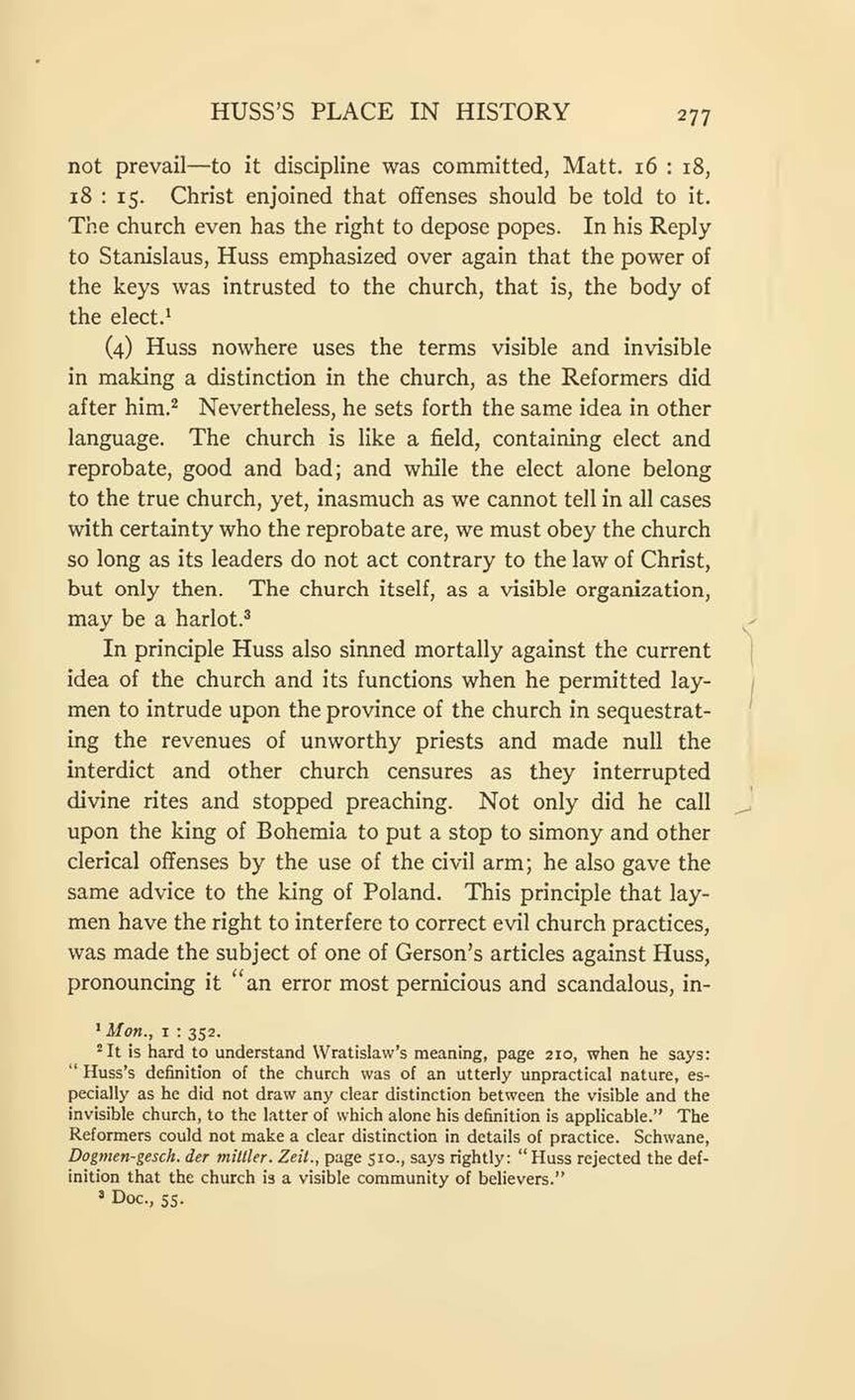not prevail-to it discipline was committed, Matt. 16: 18, 18: 15. Christ enjoined that offenses should be told to it. The church even has the right to depose popes. In his Reply to Stanislaus, Huss emphasized over again that the power of the keys was intrusted to the church, that is, the body of the elect.[1]
(4) Huss nowhere uses the terms visible and invisible in making a distinction in the church, as the Reformers did after him.[2] Nevertheless, he sets forth the same idea in other language. The church is like a field, containing elect and reprobate, good and bad; and while the elect alone belong to the true church, yet, inasmuch as we cannot tell in all cases with certainty who the reprobate are, we must obey the church so long as its leaders do not act contrary to the law of Christ, but only then. The church itself, as a visible organization, may be a harlot.[3]
In principle Huss also sinned mortally against the current idea of the church and its functions when he permitted laymen to intrude upon the province of the church in sequestrating the revenues of unworthy priests and made null the interdict and other church censures as they interrupted divine rites and stopped preaching. Not only did he call upon the king of Bohemia to put a stop to simony and other clerical offenses by the use of the civil arm; he also gave the same advice to the king of Poland. This principle that laymen have the right to interfere to correct evil church practices, was made the subject of one of Gerson’s articles against Huss, pronouncing it “an error most pernicious and scandalous, in-
- ↑ Mon., 1: 352.
- ↑ It is hard to understand Wratislaw’s meaning, page 210, when he says: “Huss’s definition of the church was of an utterly unpractical nature, especially as he did not draw any clear distinction between the visible and the invisible church, to the latter of which alone his definition is applicable.” The Reformers could not make a clear distinction in details of practice. Schwane, Dogmen-gesch. der mittler. Zeit., page 510., says rightly: “Huss rejected the definition that the church is a visible community of believers.”
- ↑ Doc., 55.
